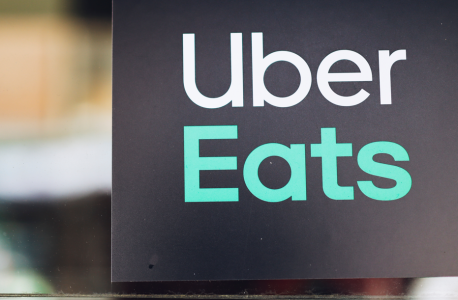Alert: Protect yourself from latest Uber Eats scam on WhatsApp!
By
Gian T
- Replies 5
In the digital age, convenience often comes with a side of caution, especially regarding the services we've come to rely on.
Food delivery apps like Uber Eats have become a staple for many of us, allowing us to enjoy our favourite meals without stepping outside our homes.
However, with the rise of these services, the number of scams targeting unsuspecting users has also increased.
Recently, Uber Eats issued an 'important alert' concerning a new scam making rounds on WhatsApp.
Users have reported receiving messages that appear to be from the food delivery service, inviting them to join a promotional team or offering rewards for liking or bookmarking merchant stores.
Uber Eats has also warned that these messages might offer rewards for liking or bookmarking merchant stores.
‘Please be aware that these messages are not sent by Uber Eats,’ it clarified.
‘If you receive these messages, we strongly advise you not to engage with it, share personal or financial information, or click on any links.’
‘Remember, we will never ask you to provide your password.’
The company strongly advised against engaging with these messages, sharing personal or financial information, or clicking on any links.
If you ever receive a suspicious message, the best action is to contact the Uber Eats customer support team directly through the official app or website.
This ensures that you're communicating through a secure channel and not falling into a trap set by scammers.
To further protect your account, Uber Eats recommends creating a password unique to their service and not shared with anyone else.
Additionally, before entering sensitive information such as your password on any website, always check that the URL in your address bar shows either https://auth.uber.com or https://login.uber.com.
These are the only official Uber websites; your vigilance here can prevent trouble.
In related news, an Uber Eats customer discovered screws in a pizza ordered from Bradman Pizza House in Adelaide, raising safety concerns.
After reviewing CCTV footage, it was determined that the restaurant was not at fault.
This led to speculation that the delivery driver, who had a recent argument, might be responsible. For more details, click here.
 Have you or someone you know encountered a scam like this? What measures do you take to protect your personal information online? Share your thoughts in the comments below.
Have you or someone you know encountered a scam like this? What measures do you take to protect your personal information online? Share your thoughts in the comments below.
Food delivery apps like Uber Eats have become a staple for many of us, allowing us to enjoy our favourite meals without stepping outside our homes.
However, with the rise of these services, the number of scams targeting unsuspecting users has also increased.
Recently, Uber Eats issued an 'important alert' concerning a new scam making rounds on WhatsApp.
Users have reported receiving messages that appear to be from the food delivery service, inviting them to join a promotional team or offering rewards for liking or bookmarking merchant stores.
Uber Eats has also warned that these messages might offer rewards for liking or bookmarking merchant stores.
‘Please be aware that these messages are not sent by Uber Eats,’ it clarified.
‘If you receive these messages, we strongly advise you not to engage with it, share personal or financial information, or click on any links.’
‘Remember, we will never ask you to provide your password.’
The company strongly advised against engaging with these messages, sharing personal or financial information, or clicking on any links.
If you ever receive a suspicious message, the best action is to contact the Uber Eats customer support team directly through the official app or website.
This ensures that you're communicating through a secure channel and not falling into a trap set by scammers.
To further protect your account, Uber Eats recommends creating a password unique to their service and not shared with anyone else.
Additionally, before entering sensitive information such as your password on any website, always check that the URL in your address bar shows either https://auth.uber.com or https://login.uber.com.
These are the only official Uber websites; your vigilance here can prevent trouble.
In related news, an Uber Eats customer discovered screws in a pizza ordered from Bradman Pizza House in Adelaide, raising safety concerns.
After reviewing CCTV footage, it was determined that the restaurant was not at fault.
This led to speculation that the delivery driver, who had a recent argument, might be responsible. For more details, click here.
Key Takeaways
- Uber Eats has issued an alert about scam messages being sent via WhatsApp claiming to be from the food delivery service.
- These fraudulent messages may entice users to join a promotional team or offer rewards for liking or bookmarking merchant stores.
- Users are advised not to engage with these messages, share personal or financial information, or click on any links. Uber Eats clarifies they will never ask for passwords or private banking details.
- Uber Eats recommended securing accounts with a unique password and verifying the authenticity of any website by checking for the URLs https://auth.uber.com or https://login.uber.com before entering sensitive information.








